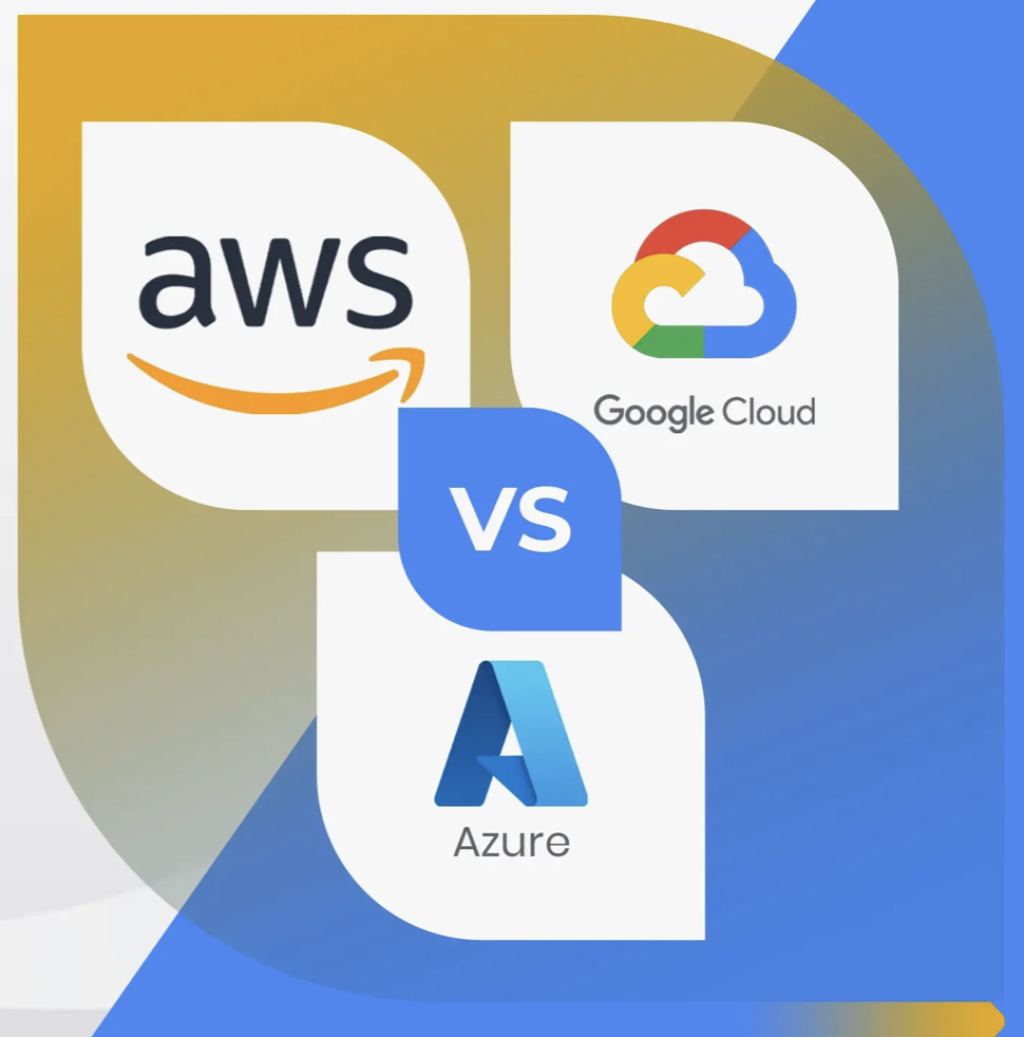Best VPN Services in 2025: Secure Your Online World
Discover the best VPN services of 2025 for privacy, speed, streaming, and security. Compare top VPNs like ExpressVPN, NordVPN, and Surfshark to protect your online activity.

Comparing AWS vs. Azure vs. Google Cloud for startups? Discover the pros, cons, pricing, and best use cases of each cloud platform to help you choose the right one for your startup's growth.
In the fast-paced world of startups, choosing the right cloud service provider is crucial for success. Amazon Web Services (AWS), Microsoft Azure, and Google Cloud are three major players in the cloud computing space, each offering unique features, pricing, and benefits. But which one is best suited for startups? In this blog, we will break down the pros and cons of each cloud platform to help you make an informed decision.
Table of contents [Show]
AWS is the most established and widely used cloud platform, offering a comprehensive suite of services from computing power to storage, machine learning, and database management. It's trusted by many large enterprises, but that doesn’t mean startups can’t benefit from it too.
Pros:
Cons:
Best For:
Startups that need a robust, scalable cloud platform with a wide variety of services and the potential to grow rapidly.
Azure is Microsoft’s cloud platform, known for its strong integration with Microsoft products like Windows Server, Active Directory, and Office 365. For startups that rely heavily on Microsoft’s software ecosystem, Azure can be a natural choice.
Pros:
Cons:
Best For:
Startups that are already using Microsoft products or those looking for a hybrid cloud solution.
Google Cloud is known for its strong performance in big data analytics, machine learning, and Kubernetes-based applications. If your startup is focused on data-heavy applications or wants to leverage Google’s AI capabilities, Google Cloud might be the ideal choice.
Pros:
Cons:
Best For:
Startups focused on big data, machine learning, and containerized applications, or those looking for a simpler pricing model.
| Provider | Startup Program | Free Credits | Additional Benefits |
|---|---|---|---|
| AWS | AWS Activate | Up to $100K | Training, support, and credits. |
| Azure | Microsoft for Startups | Up to $150K | Free GitHub, OpenAI credits, and mentorship. |
| Google Cloud | Google for Startups | Up to $350K | Firebase credits, AI/ML support, and mentorship. |
Pricing:
Ease of Use:
Support and Community:
Ultimately, the best cloud provider for your startup depends on your specific needs:
All three platforms have their strengths and weaknesses, but with careful planning, any of them can serve as a solid foundation for your startup’s growth. Take time to evaluate your startup’s unique needs, and consider starting with smaller-scale projects to get a feel for each platform before committing to a long-term solution.
Discover the best VPN services of 2025 for privacy, speed, streaming, and security. Compare top VPNs like ExpressVPN, NordVPN, and Surfshark to protect your online activity.
Discover the top 10 everyday devices that quietly use IoT technology to enhance your life. From smart thermostats to connected cars, explore how IoT is transforming daily routines in ways you don't notice. Learn more now!
Discover how chatbots work behind the scenes with large language models, transformers, and AI training. A deep dive into the tech powering modern AI.

